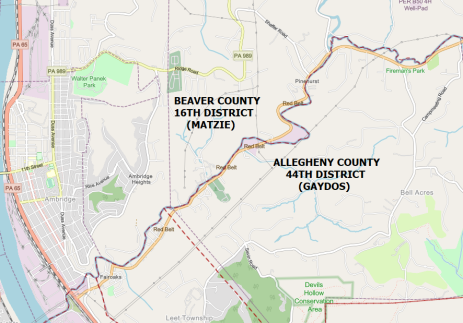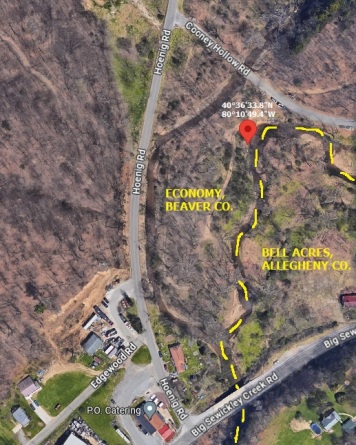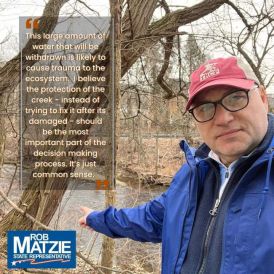I hope you’ve had a good year thus far.
Over the last few months I’ve been collecting ideas for new stories, revisiting old ones, and reviewing developments locally and elsewhere that stand to embellish both. They will make their way here in coming weeks, hopefully without unnecessary delay.
Among these was a rediscovery of sorts, courtesy of an energetic virtuoso classical pianist that I found on YouTube and Spotify while looking for something to listen to while doing the evening dishes.
I first became familiar with the works of Sergei Rachmaninoff as a teenage band geek. Through the assistance of the late George Habers and his Carroll’s Music Store in Sewickley (where Thomas Jewelers is today), I was able to gather a small collection of recordings representative of the body of work of one of the great composers of the early 20th century. It also helped that the Pittsburgh Symphony, led at that time by André Previn, played many of these pieces during their concerts, which were broadcast on WQED-FM, currently celebrating its 50th anniversary.
While those recordings are now either lost or in storage somewhere distant, a search for something else brought me to the doorstep of what has been a resurgence in the popularity of classical music, which one music publication attributed to restrictions during the COVID pandemic –
A 2020 study by the Royal Philharmonic Orchestra, Deezer, and the British Phonographic Industry (BPI) found that classical music was enjoying a rise in popularity among young people during the lockdown period…35% of respondents in the Orchestra’s research felt the genre helped them to relax and maintain calmness and well-being during the pandemic, with 18% saying that listening lifted their spirits.
Orchestras are picking up on this vibe, and attempting to offer programming that is attractive to younger adult audiences, perhaps those with more casual lifestyles, a shorter attention span, and more disposable income.
WESA reported last year on efforts by the PSO to more fully engage this demographic, including this season’s PSO Disrupt series, designed to “reinvent the classical music concert experience as more welcoming”.
After revisiting Rachmaninoff’s music through the expertise of Yuja Wang, I regained an appreciation that had been forgotten, and for which I am grateful.
If you have a little time to spare, give her a listen –
Municipalities Reorganize and Re-Energize, with Reservations
Local boroughs and townships were busy during January reorganizing for the coming year. Along with swearing in newly elected officials and re-elected incumbents, the re-appointment of professional services providers such as solicitors and engineers is also undertaken, as is the appointment of an official publication to advertise legal notices.
The Sewickley Herald attempted to cover as many of these reorganizations as they could, which is a good thing. These events are mostly formalities, with some exceptions and additional legislative activity involved. Here are some examples –
The reorganization of Edgeworth Borough Council was postponed by two weeks, owing to a reported lack of a quorum. When they did convene on January 16, new councilor Rebecca Cartus was among those sworn in. Rev. Cartus, a commissioned interfaith minister and certified teacher, polled ahead of long-time incumbent David Aloe in November.

Council recognized Mr. Aloe at their December meeting for “his twenty-nine year tenure as a member of Borough Council, in addition to his other positions on various boards, commissions, and other community organizations“. During the same meeting, the remainder of Council appointed Mr. Aloe to a vacant seat on the board of the Edgeworth Municipal Authority. Per the borough website, Mr. Aloe also serves on the Civil Service and Planning Commissions, and the Board of Directors of the Quaker Valley Ambulance Authority (QVAA).
The Herald also reported that Council approved the hiring of a full-time police officer, which makes the borough’s police force staffed with only full-timers. Council also authorized the purchase of two Automatic License Plate Reader (ALPR) devices for patrol cars, with funds donated by a borough resident.
As reported here previously, ALPR technology has been in local use for several years in primarily fixed locations, such as the intersections at both ends of the Sewickley Bridge.
The Quaker Valley COG reported in its 2023 annual report that Rep. Valerie Gaydos (R-Edgeworth) had assisted in securing a $100,000 grant “for the procurement, installation, and maintenance of traffic cameras and associated license plate identification technology… The QVCOG Police Chiefs Committee identified several regional intersections that would be appropriate for the aforementioned technology”.
Mobile use of this technology is also expanding; the Edgeworth purchase is perhaps one of the first installations of vehicle-based ALPR in the immediate local area.
ALPR technology remains controversial from a civil liberties standpoint. Advocacy groups such as the Electronic Frontier Foundation have outlined the various ways that law enforcement can leverage ALPR for as many potentially nefarious purposes as ones that have genuine benefit to the essential services that police provide.
A particular area of concern is connecting ALPR systems into a nationwide mass-surveillance network, capturing the movement of citizens through their vehicles and sharing that information with, in many locations, whomever they choose. Private companies such as Flock and Vigilant continue to actively market these networked systems to police departments both large and small – Edgeworth’s system comes from Motorola Solutions, which also owns Vigilant.
The American Civil Liberties Union has closely followed the expansion of ALPR since the 2010s. In a position statement released last year, the ACLU outlined its concerns, framed with the positives associated with ALPR technology –
We don’t find every use of ALPRs objectionable…we do not generally object to using them to check license plates against lists of stolen cars, for AMBER Alerts, or for toll collection, provided they are deployed and used fairly and subject to proper checks and balances…
But there’s no reason the technology should be used to create comprehensive records of everybody’s comings and goings — and that is precisely what ALPR databases like Flock’s are doing.
In our country, the government should not be tracking us unless it has individualized suspicion that we’re engaged in wrongdoing.
The report also offers strategies for concerned citizens that address the data collected by the ALPR – how long it is retained, who it is shared with, and how it is used in conjunction with existing criminal justice systems. According to the National Conference of State Legislatures, only 16 states currently have laws on the books that address these issues in some fashion. Pennsylvania isn’t one of them.
The last attempt to introduce a bill here appears to be 5 years ago – Rep. Rob Matzie (D – Harmony Twp.) was a co-sponsor. I’ve reached out to him for any updates on more recent efforts.
< = >
In Leetsdale, a welcome to both new and not-so-new members of Council took place on January 2, as incumbents Jeff Weatherby and Wes James (who did not seek re-election) were replaced by Scott Zahner and Benjimen Frederick. Mr. Zahner, a long-term Leetsdale resident and current President of the Quaker Valley Rotary Club, has most recently distinguished himself in the steering of the volunteer committee that plans and fund-raises to conduct the borough’s annual 4th of July celebration.

Mr. Frederick, who served on council from 2017-2021 before being denied re-election, found his way back on this year, continuing the trend in Leetsdale of recycling politicians. This is not necessarily a bad thing when you have a small pool of potential candidates to draw from, but may not be as desirable on the larger stage. Consider that only one U.S. President has ever been elected to non-consecutive terms – let’s hope it stays that way.
There are several items involving Leetsdale Council and administration that are noteworthy as the year progresses –
The delayed issuance of an occupancy permit to Rize Sports (reported on in October of last year) remains in place as of February, according to Borough Secretary Jennifer Simek. The required elements necessary for completion to satisfy the borough’s requirements were detailed in an October 3, 2023 letter from borough engineer Dan Slagle. This is included in a cache of documents obtained via a Right To Know Law request in November 2023. The minutes of that month’s Council meeting included comment from several residents (myself included) concerning the project and its impact on the neighborhood. The Engineer’s report from January indicates that improvements to an acoustical barrier on the property are being completed, with additional testing to follow.
According to Herald reporting from February 19, Council appointed two residents to vacancies on the Planning Commission. One is Washington Street resident James DeGori, who has been vocal in pointing out difficulties related to the construction and operation of the Rize Sports site, and its impact on his and other nearby residences. The other is downslope homeowner, high school project opponent and recent school board candidate Bill Jasper.

The borough appears to be making changes in its approach to code enforcement issues. The Council agenda for February 8 also included a proposal to hire Harshman Group as Zoning Officer and Building Inspector.
Harshman provides services to numerous municipalities across 4 counties. They were previously contracted by Sewickley Borough to provide services after the retirement of the borough’s code enforcement officer in 2019. As reported here, Sewickley’s relationship with Harshman was not without its rough spots, and the borough has since gone back to administering these services in-house.
The Herald reported that Leetsdale Council tabled the motion to hire Harshman at its February 8 meeting. No reason was specified. Per the agenda for the March 7 workshop meeting, Council will consider this again at their regular meeting this Thursday.
I’ll be monitoring and reporting on any future developments on the code enforcement front in Leetsdale. Based on previous observations and posts from as far back as 2016, as well as recent changes to the way public records information is shared, there is cause for concern that I will elaborate on at a later date.
< = >
The reorganization in Leet Township was well documented in the minutes posted on the township website. The transition for Township Commissioner mirrors that of Leetsdale, with former commissioner Donna Adipietro and newcomer Martin Zimmel being elected in November. Long-term incumbent Carolyn Verszyla was denied in her re-election bid, while incumbent Martin McDaniel, who has been involved in local governance for nearly half a century, was re-elected to another 4-year term.
Mr. McDaniel was actually hired by Sewickley Council as Borough Manager 46 years ago last week, and started his work there on April 1, 1978.
Ms. Adipietro returns to the Commissioners after a 2-year absence amidst a close election in 2021. She was first elected a Commissioner in 2017 – prior to that she served for over 15 years as the Township’s board representative to the QVAA, and for 16 years as its’ Emergency Management Coordinator. She also currently serves on the Planning Commission and as Leet’s representative to the QVCOG.
Mr. Zimmel has a lengthy background in law enforcement, including as Crescent Township’s Police Chief in the 2010s and a stint with the Ambridge Police Department. Most recently, Mr. Zimmel has been employed by Sewickley Borough – he coordinates the police department’s handling of code enforcement issues.

Perhaps his expertise may be put to additional use as the township begins the process of hiring a permanent Police Chief, for which it has advertised on its website. The agenda for the February 26 meeting listed a motion to authorize the Civil Service Commission to begin the process of testing for full and part-time police officer positions as well.
Also included under New Business, Public Safety Committee was a “Motion on Potential Litigation Settlement“. Seeing this, I checked local, state and federal court databases and found a new lawsuit filed by former police chief Michael Molinaro. In the complaint, Mr. Molinaro alleges a breach of a 5-year employment contract, and is demanding wages, benefits and other compensation in excess of $400,000.
Emails sent to attorneys for both Mr. Molinaro and the township requesting comment regarding the suit received no reply. The Herald was getting the silent treatment as well.
The Commissioners also appointed Chris Rearick as their Zoning Officer. Mr. Rearick is certified by the American Institute of Certified Planners (AICP), part of the American Planning Association (APA), and also serves as the Township Manager in Jackson Township, Butler County.
The zoning appointment is part of the QVCOG’s Zoning Technical Assistance (ZTA) program, designed to “share the services of a zoning consultant…to assist, guide and advise (municipalities) and/or their respective Zoning Officers regarding any zoning issues that arise in conjunction with the administration, enforcement and interpretation of a participating municipality’s zoning ordinance”.
This initiative by the QVCOG to make available to their member municipalities personnel with expertise in the nuances of planning, zoning, and other land use issues is a feather in the cap of the organization. The impact upon those boroughs and townships that take advantage of this will be interesting to monitor down the road.
Leet Commissioners also followed the lead of several other nearby municipalities in passing an ordinance regulating short-term rentals. The Herald reported in January that members of the township Planning Commission made the recommendation based on a highly publicized April 2022 shooting incident in Pittsburgh.
Mr. McDaniel told the Herald he was unaware of any current short-term rentals in the township, so this ordinance may just be a preemptive strike against excessive revelry. Leet Township residents can now rest assured that their communities are protected from a raging kegger at an Airbnb or Vrbo, while those conducted by the property owners might perhaps be undisturbed. Who knows?
Commonwealth Court Ruling, Engineering Review Equals Mixed Bag for High School Project
Proponents of the Quaker Valley High School project received a boost in late January with the Commonwealth Court decision reaffirming the earlier ruling by Common Pleas Court overruling certain requirements made by the Leet Zoning Hearing Board (ZHB).
![]() The complete opinion basically concurred with the lower court that the ZHB exceeded its authority. It’s highly likely that the two core issues that have arisen out of this process – the emergency access road and the protection of downslope Leetsdale homeowners – will continue to be fleshed out before the Planning Commission, because frankly that’s where they belonged in the first place.
The complete opinion basically concurred with the lower court that the ZHB exceeded its authority. It’s highly likely that the two core issues that have arisen out of this process – the emergency access road and the protection of downslope Leetsdale homeowners – will continue to be fleshed out before the Planning Commission, because frankly that’s where they belonged in the first place.
Reached in mid-February regarding the possibility of an appeal, Bill Jasper, one of the participating objectors, commented on the decision –
In 2019 Leet amended its zoning ordinance, the effect of which seemed to shift the burden of proving the health, safety and welfare concerns of a particular zoning decision from the applicant to the objectors. Leet had exhausted its budget for legal expense and chose not to fight this interpretation. We essentially filled the gap by taking up the cause that should have been pursued by the township. We lost, not on principle, but largely for lack of unity.
Further, the project is significantly delayed, if not dead. If the QVSD engineers cannot rationalize needed exceptions to the Leet land development and grading ordinances, the school does not fit on the proposed site. The problem is so existential that required applications for permits from Allegheny County, the DEP and respective utilities have not even been initiated.
It’s senseless to continue with a further appeal.
The district’s interactions with the Leet Planning Commission have thus far been a halting affair, due in part to a review of the plan documents by Leet Township’s engineering firm, Lennon Smith Souleret Engineering (LSSE).
In late December LSSE submitted a detailed review of the latest site plan submission. This 11-page document details several errors, omissions, and inconsistencies in the plan documents and engineering drawings, as compared to what is required to be submitted for consideration. For example –
Documentation of an approved Highway Occupancy Permit (HOP) remains to be provided. Additionally, traffic control plans provided are noted as preliminary. Final plans, in accordance with any approved HOP from Allegheny County, must be provided.
This comment appears to dovetail with Mr. Jasper’s comment above, and suggests that considerable work needs to be done, with associated coordination and permitting from other involved stakeholders, before a final plan is ready for consideration by the Planning Commission.
The commission canceled their February 22 meeting, and the status of this month’s meeting, scheduled for March 28, is as yet unknown.
DEP Ruling on Big Sewickley Creek Roils Many – Crickets Stand Out

Map showing the Allegheny / Beaver County line as defined by Big Sewickley Creek. The creek also serves as the boundary between the 16th and 44th legislative districts. Click to enlarge. – Allegheny County GIS / J. Linko
In late January, the PA Department of Environmental Protection (DEP) issued a letter of approval to PennEnergy Resources to draw as much as 1.5 million gallons per day from Big Sewickley Creek, to support hydraulic fracturing (fracking) operations in Economy Borough, Beaver County.
Several miles of Big Sewickley Creek serves as the boundary between Allegheny and Beaver counties. It also serves as the boundary between Rep. Matzie’s 16th District and Rep. Gaydos’ 44th District (see graphic above). While the proposed site where the water will be drawn is on the Beaver County side, any impact on the surrounding environment and habitat will affect the entire watershed, which reaches well into both counties.

Cooney Hollow area of Big Sewickley Creek, with pinned GPS location of water pumping operation from DEP approval letter. Municipal boundaries included. Click to enlarge – Google Maps / J. Linko
PennEnergy has been trying for the last several years to gain approval for this water source, according to reporting by both the Herald and the Beaver County Times.
Reaction to the DEP decision was swift and loud. Jessica Guay of KDKA-TV detailed both stakeholder objections and the PennEnergy response in a report from February 21. The Big Sewickley Creek Watershed Association (BSCWA) has posted several updates on its Facebook page, while continuing to promote its regular activities as the opening of trout season approaches. They have also produced a background information document that has some interesting revelations to share.
 The PA Environment Digest Blog, with some very detailed reporting on the permit approval last month, quoted Katie Stanley, BSCWA President –
The PA Environment Digest Blog, with some very detailed reporting on the permit approval last month, quoted Katie Stanley, BSCWA President –
(BSCWA) reflects the frustration of all who advocated against this permit. Residents’ favorite spots are going to be impacted, including popular fishing locations and the famous swimming hole. Hundreds of community members spoke out against this, our state representative didn’t want this, yet the decision was still made to grant the permit. Why don’t the people who live near, recreate in, and care about this creek get a say in a decision that impacts them and the wildlife they care about?
Informed sources had been hinting at a more formal response coming from this group, and that response came to light on Friday of this week in the form of an appeal of the decision before the PA Environmental Hearing Board.
The docket sheet for the appeal includes several documents so far. Among these are the appeal document and appendix which sets forth specific objections to the approved Water Management Plan (WMP), as well as a lengthy public comment response document. The court has set a schedule of required conferences and filings that runs into October.
I will be digging further into these as the appeal runs its course.
Rep. Rob Matzie, a vocal opponent of the project since it was first proposed, wasted no time in criticizing the DEP decision. In a July 2021 letter to then-DEP Secretary Patrick McDonnell, Matzie also wrote –
Let me be clear. I am on record as supporting natural gas extraction. I do not support a ban. But I have also fought for and voted against measures that weaken regulations and remove local input and control on these permit requests.
ln most cases, I believe we can have energy extraction and maintain a clean, healthy environment. I do not believe this is one of those cases.
Perhaps the most interesting aspect of this development is where comment and position statements are not coming from.
This is most notable with the lack of any statement from Rep. Valerie Gaydos. Neither Rep. Gaydos’ website, Facebook page, or most recent e-mail newsletter makes any comment about the granting of the permit and/or any community concerns.
An e-mail sent to Rep. Gaydos on February 19, inquiring as to when a statement may be forthcoming, has thus far received no reply.
The two state senators whose respective district boundaries also follow the creek, Sen. Devlin Robinson (R-Bridgeville) and Sen. Elder Vogel Jr. (R-New Sewickley Twp.) also make no mention of the controversy on their respective websites.
Sen. Robinson did mention in his most recent newsletter that trout stocking is taking place in preparation for the opening of the season in less than a month. This is nice, so long as there is a viable local creek to stock.
One other person that did reply to an e-mail was Hadley Haas of Glen Osborne, who is running for the Democratic nomination to challenge Ms. Gaydos in November. Ms. Haas replied –
I am aware and concerned about the PA DEP / Penn Energy decision regarding Big Sewickley Creek.
I have reached out to Rep. Matzie to better understand the situation and the path forward. Once we have that conversation, I will be prepared to issue a response and will notify you at that time.
Thank you for your patience.
Ms. Haas’ campaign website lists clean air and water as a key focus area of her campaign, so hopefully a more comprehensive response will be forthcoming as the April primary approaches.
I generally like the job Ms. Gaydos is doing, insofar as being (mostly) responsive to concerns and questions as well as bringing home the bacon for first responders and others.
While I disagree with her advocacy of the GOP position on certain issues, she is also capable of reaching across the aisle for bipartisan efforts to accomplish meaningful results.
Witness her partnership with Rep. Emily Kinkead (D-Pittsburgh) to get a landslide insurance bill introduced – a timely effort considering recent events in Moon Township and the concerns of Leetsdale homeowners downslope of the proposed high school.
 So it would seem to be incumbent upon Ms. Gaydos, as a local resident and arguably the most visible presence of state government in our immediate area, to speak to the Big Sewickley Creek dispute as she would any significant community concern, as part of her regular duty to her constituents.
So it would seem to be incumbent upon Ms. Gaydos, as a local resident and arguably the most visible presence of state government in our immediate area, to speak to the Big Sewickley Creek dispute as she would any significant community concern, as part of her regular duty to her constituents.
This is irrespective of any position her party may take on use of this resource, or on the energy development that it supports. It would also appear to be another opportunity for bipartisan cooperation, as the creek impacts her constituency as much as it does Mr. Matzie’s, and both legislators have previously stated their support for local control and input.
Her silence thus far seems to defy explanation – this meant to me that it was worthy of further exploration.
This led me to the campaign finance reports filed by the Gaydos campaign for the 2022 general election. A search of one such filing in October 2022 (see Page 33) revealed a $1,000 contribution to Ms. Gaydos by Richard Weber of Sewickley, who listed his occupation as CEO of PennEnergy Resources – verified by the company website.
This is but one contribution – there could likely be more, but I’m not digging any further at the moment.
For lack of anything else, it appears that Ms. Gaydos is allowing that money to speak for now, and precious little is being said.
The silence is deafening.
Until next time.




































